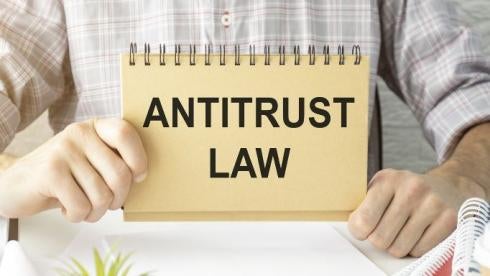The American Bar Association Antitrust Law Section’s annual Spring Meeting is underway in Washington, DC. The annual Spring Meeting features updates from federal, state and international antitrust enforcers and extensive discussion on priority antitrust issues affecting various industries.
This article highlights key takeaways from the first portion of the Spring Meeting.
IN DEPTH
ANTITRUST AGENCIES’ PRIORITIES AND FOCUS
- Final Changes to Hart-Scott-Rodino Act (HSR) Rules Are Imminent
Deputy Assistant Attorney General (DAAG) Andrew Forman predicted that the changes to the HSR filing rules would be finalized in the coming weeks, rather than months. The final rules will be “less burdensome” than the changes that were initially proposed and have “material” differences from the proposed rules.
- Information Sharing Is an “Area of Huge Interest”
Principal DAAG Doha Mekki noted that the US Department of Justice (DOJ) can draw a “straight line” between information sharing and areas where collusion has occurred. DOJ stated that the public should expect to see more enforcement activity around information sharing.
- DOJ Reevaluates Its Guidance Documents
Mekki noted that DOJ’s Antitrust Division (the Division) is reevaluating whether its current guidance documents accurately reflect how the Division currently assesses competition. Mekki highlighted the July 2023 withdrawal of two antitrust policy statements related to enforcement in healthcare markets as examples of outdated guidance that the Division seeks to wipe clean.
- The Division Has Many Mature Investigations Ripe for Next Steps
Mekki warned that 2024 will be busy for the Division. The Division is continuing its “whole of government approach to competition enforcement,” which entails enforcing competition laws beyond traditional Clayton and Sherman Act cases and coordinating with counterparts at other federal agencies.
- Labor Markets Remain a Priority
When contemplating transactions, companies should consider not just downstream product markets but also their status as competitors for labor. The Federal Trade Commission (FTC) and DOJ (the Agencies) continue to assess competition for hiring employees when evaluating mergers, and they are not solely focused on wages, as they are also assessing overlaps in physical offices, plants and locations; commuting distances; workplace quality of life; workforce switching between companies; and impacts on unions.
- DOJ Continues Pursuit of Criminal Antitrust Trials, Despite Tribulations
The Division has implemented a cultural shift in evaluating its litigation priorities. The Division now starts trial preparation the moment it initiates an investigation and has plans to staff a deep litigation bench. The Division also continues to foster relationships and partner with state enforcers in its pursuit of criminal antitrust litigation.
- Preserve Ephemeral Messaging Early
DOJ Deputy Director of Civil Enforcement Suzanne Morris emphasized the agency’s position regarding firms’ obligation to preserve ephemeral documents. She said the duty to preserve kicks in when a company can “reasonably anticipate an agency investigation,” even if this occurs before the Division issues a preservation notice.
Former DAAG Andrew Finch noted that counsel should not just advise clients on this preservation practice but should also keep a careful record of such guidance and steps taken to preserve documents for agency consideration.
- Expect Systematic Enforcement of Section 8 Violations Rather Than on an Ad Hoc Basis
DAAG Forman highlighted that DOJ has unwound or prevented interlocks in at least two dozen companies since it reinvigorated its enforcement of Section 8 of the Clayton Act, which prohibits competitors from sharing corporate directors or officers. DOJ specifically called out artificial intelligence as an industry that the Division is closely scrutinizing for interlocking directorates. Thus, as DOJ’s focus on Section 8 persists, proactive compliance measures are key.
Both FTC and DOJ also noted their intent to look for interlocking directorates when evaluating mergers. The Agencies warn that it is incumbent on companies to review their board membership annually, especially where private equity (PE) firms are involved. PE firms often enter new markets, and their investment typically comes with the right to appoint a board seat, which can create an interlocking director that did not previously exist. One Spring Meeting panelist stated, “An ounce of prevention is worth a pound of cure,” noting that meaningful compliance with Section 8 is paramount to smooth and efficient deal processes.
When evaluating transactions, companies should keep Section 8 in mind during the onboarding process and make sure they understand all other boards on which executives sit or plan to join.
- Healthcare Transactions Remain Under “Attack”
Katrina Rouse, Health Care Counsel and Acting Deputy Director of Civil Enforcement for the Division, said DOJ is scrutinizing the healthcare industry closely given the industry’s importance to the US national economy. The Division is especially concerned about the increasing wave of vertical consolidation in the healthcare industry.
Jordan Andrew, FTC Bureau of Competition’s Deputy Assistant Director of the Mergers I Division, emphasized that transactions may result in harm to competition even when there is no commercialized product on the market, such as when two pharmaceutical or biotechnology firms are developing pipeline products but have not yet filed for or received FDA approval. FTC is carefully assessing potential competition and innovation (or research and development) competition between healthcare, pharmaceutical and biotechnology firms, and the revised Merger Guidelines provide avenues for FTC to pursue such cases.
Andrew also highlighted that FTC will continue to make use of Section 2 of the Sherman Act when challenging problematic mergers involving a monopolist. With respect to hospital mergers, FTC indicated it will make a decision to challenge the transaction regardless of whether the parties have secured a Certificate of Public Advantage. Indeed, several recent hospital merger cases demonstrate FTC’s willingness to pursue litigation in these local markets even where state antitrust enforcers support the transaction in question.
ANTITRUST AGENCIES CONTINUE TO RESIST REMEDIES
- Formal Remedy Agreements With the Agencies Are at a Historic Low
FTC and DOJ continue to express great skepticism towards remedies proposed by merging parties. The Agencies are particularly skeptical of behavioral remedies because they are complex to police and enforce. As a result, the Agencies believe consumers and the market bear the risk for these remedies failing. Rahul Rao, Deputy Director of FTC’s Bureau of Competition, emphasized that the agency is not afraid to “litigate the fix” if parties are unable to put forth satisfactory proposals for remedies. Further, Ryan Danks, Director of Civil Enforcement at DOJ’s Antitrust Division, stated that merging parties should focus on putting forward arguments for why a transaction will not harm competition without remedial measures.
- Transparent, Proactive Engagement With the Agencies Is Strongly Encouraged
Acknowledging that merging parties want to have their transactions cleared, enforcers are willing to consider the merits of a transaction earlier in the process. If merging parties are willing to proactively engage with the Agencies, the enforcers will commit to providing more upfront feedback regarding their concerns with certain transactions that may present antitrust issues, which could better manage expectations for the merging parties.
To allow the Agencies to meaningfully and practically work with merging parties to remedy any potential harms to competition, however, the Agencies stress that merging parties need to be forthcoming in their remedy proposals. The Agencies ask that parties to a transaction allow potential divestiture buyers to interact with Agency staff independently, fully inform the Agencies of the competency of such buyers and evaluate – prior to filing a HSR notification – what the litigation risks are and how the transaction should be positioned before the court.
PRIVATE EQUITY REMAINS UNDER AGENCIES’ MICROSCOPE
- The PE Business Model, Particularly in the Healthcare Sector, Has Attracted High Levels of Enforcement Scrutiny
Enforcers continue to remain skeptical about the procompetitive benefits of acquisitions by PE firms and question PE firms’ incentives to act as vigorous competitors.
Richard Mosier, the Division’s Special Counsel for PE, said the Division is closely scrutinizing PE acquisitions due to the use of serial acquisitions (or “roll ups”) that result in a trend toward concentration. He emphasized that roll ups can be both horizontal and vertical (such as when a firm attempts to control every part of a technology stack) and said the Division will look to challenge problematic transactions under Section 7 of the Clayton Act or Section 2 of the Sherman Act. Mosier also reminded firms that the Division will review prior non-reportable transactions.
In addition, Mosier said the Division is concerned about HSR deficiencies in the PE space (particularly when a small number of Item 4 documents are included in the filing) and questioned whether PE firms are “not taking seriously” their HSR obligations. He said the Division will not hesitate to bring cases for violations of the HSR Act, reiterating prior remarks from Ryan Danks that PE firms’ failure to comply with the HSR Act poses an “existential threat” to merger enforcement.
In light of this heightened scrutiny, PE firms should remember to fully comply with their obligations under the HSR Act.
- There Is a “Cross-Government Inquiry” Into PE Transactions
As the Agencies continue to publicize their skepticism of PE deals, FTC and DOJ are taking a joint governmental approach in launching a “cross-government inquiry” into “corporate greed” in healthcare.
Because PE as an acquisition strategy is under the microscope, PE buyers should exercise diligence in preserving documents and communications in anticipation of potential investigations during or after the course of their proposed acquisitions. Panelists suggested that buyers considering serial acquisitions strategically consider completing the most critical transactions first and prepare to offer evidence that the acquisition does not substantially lessen output or quality of products and services in the relevant market.







 i
i


